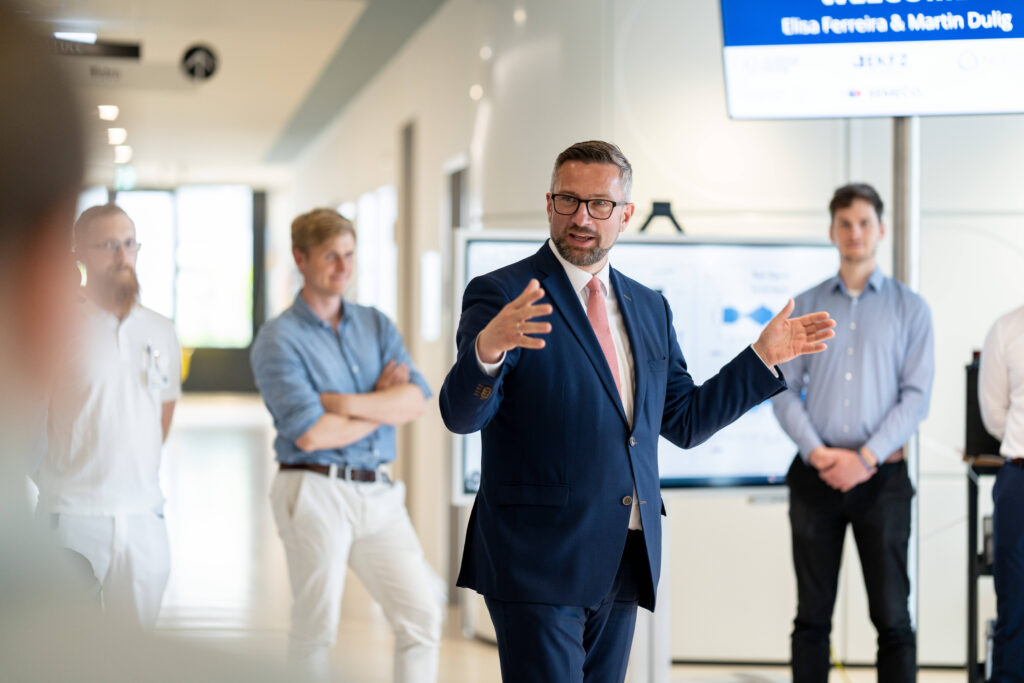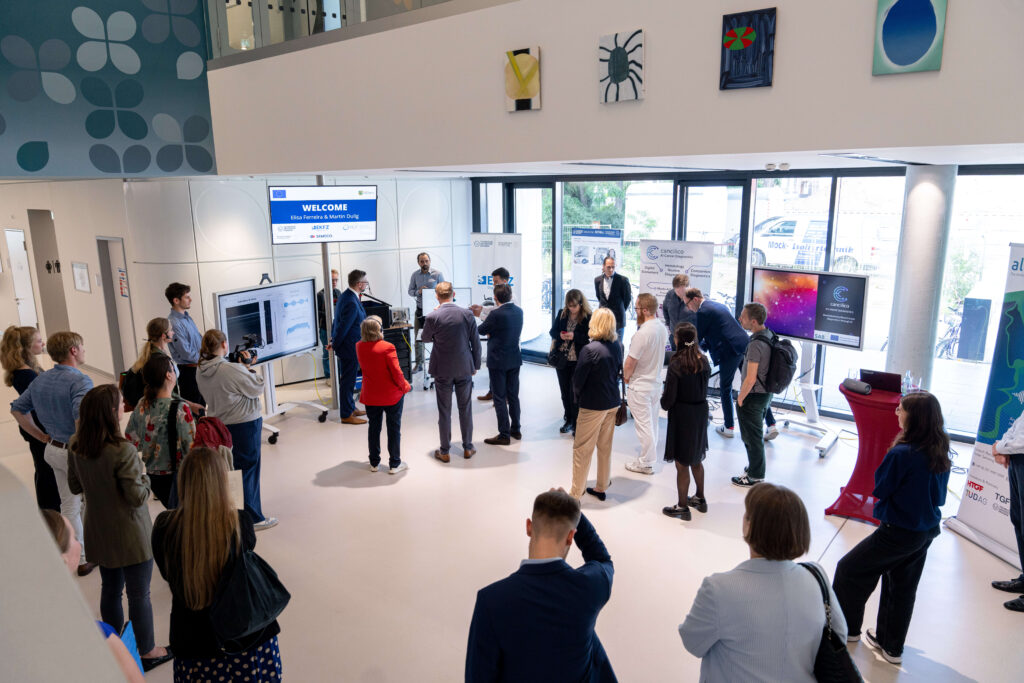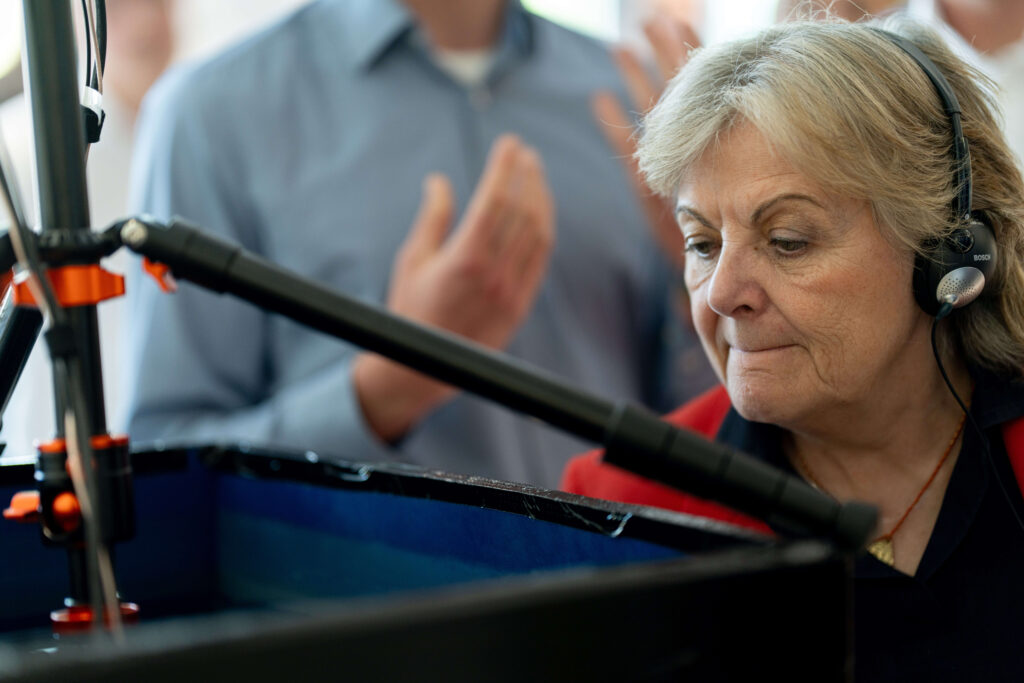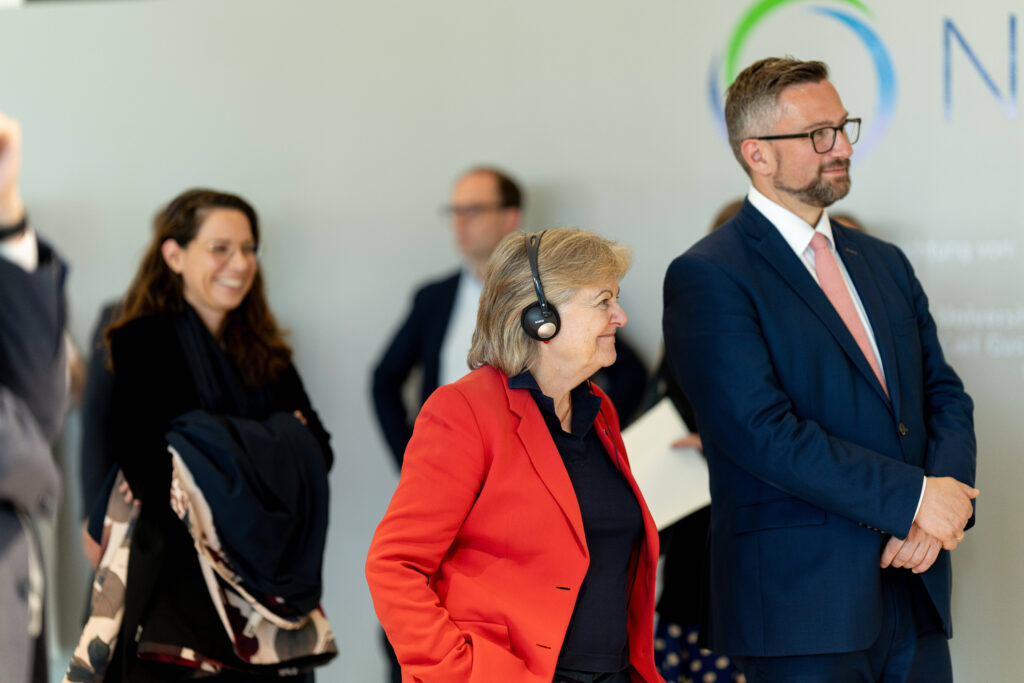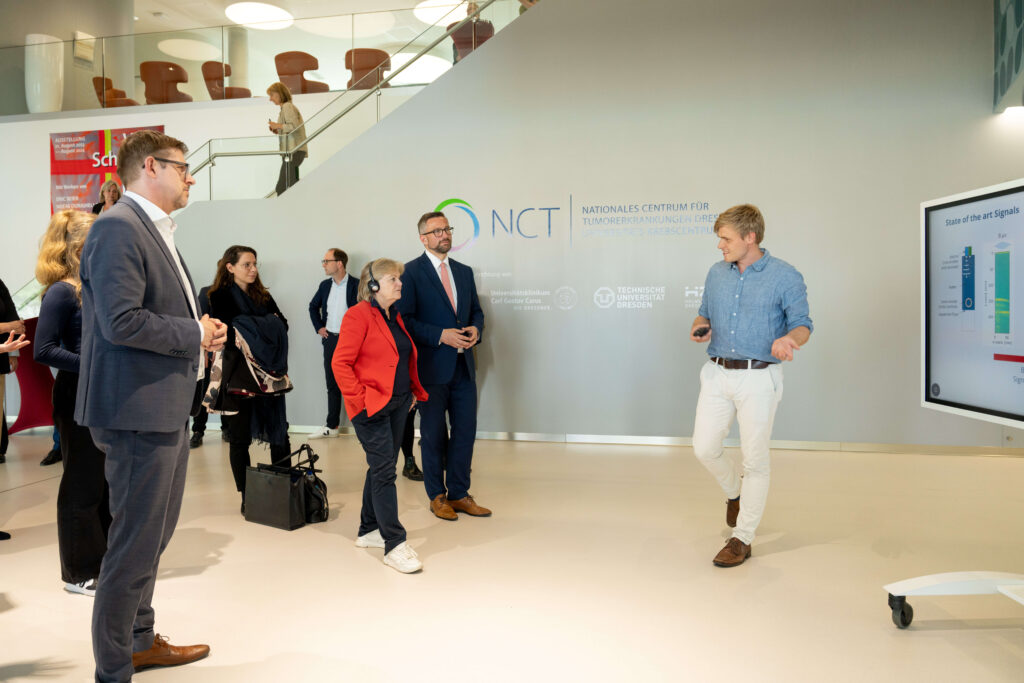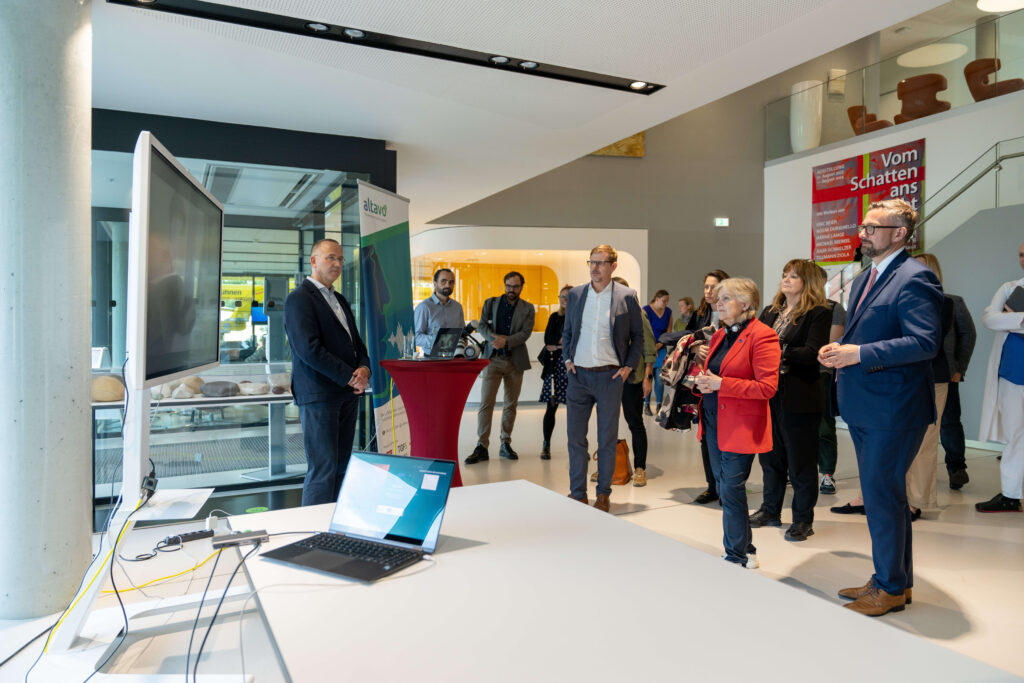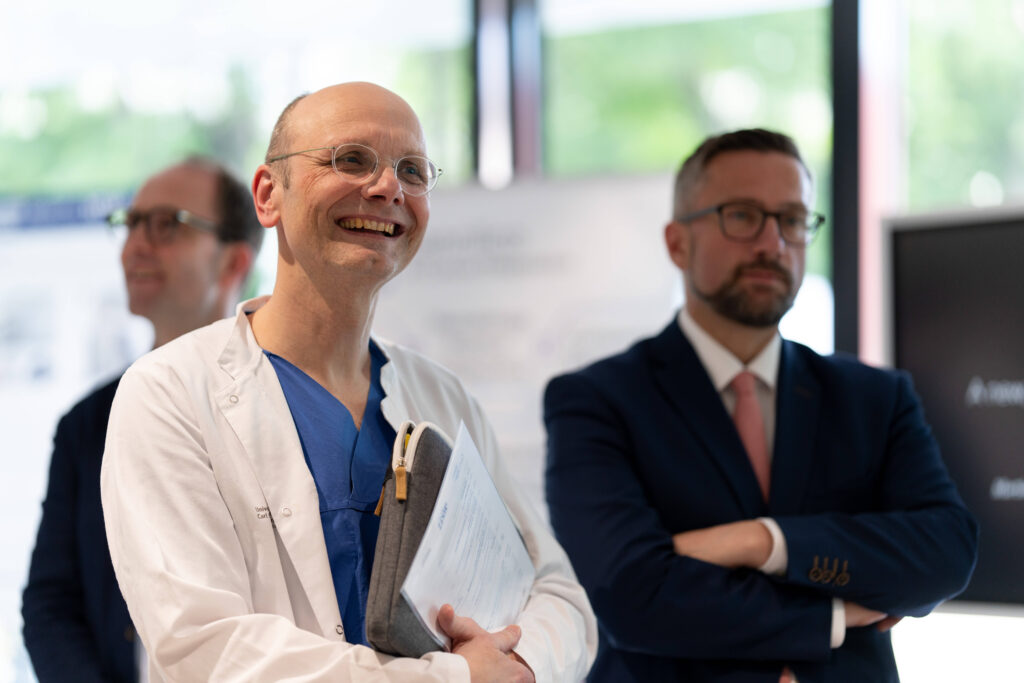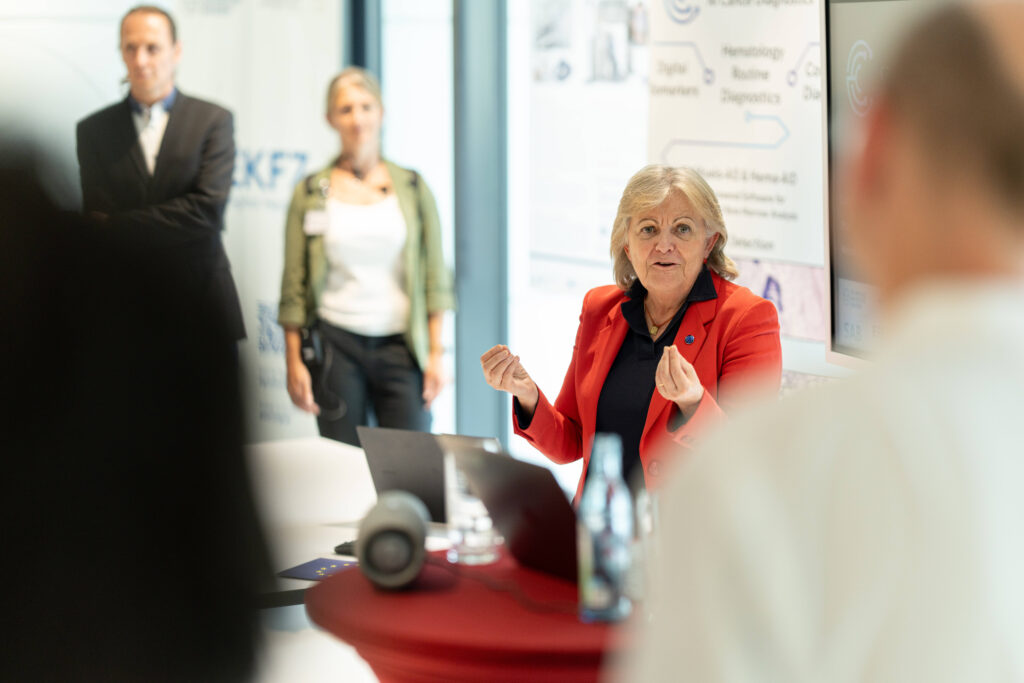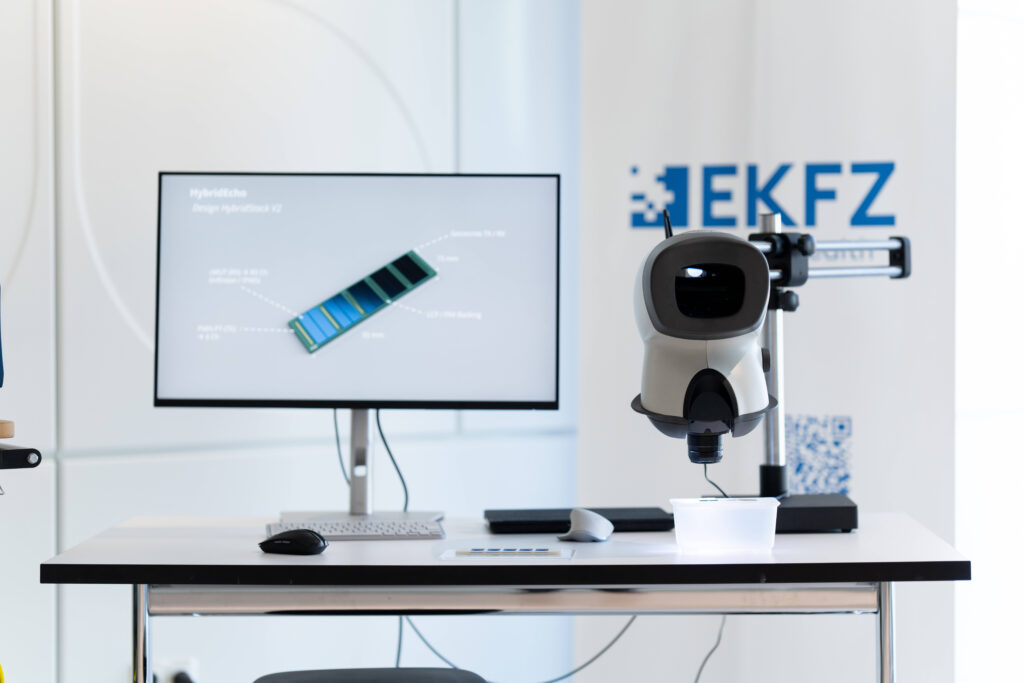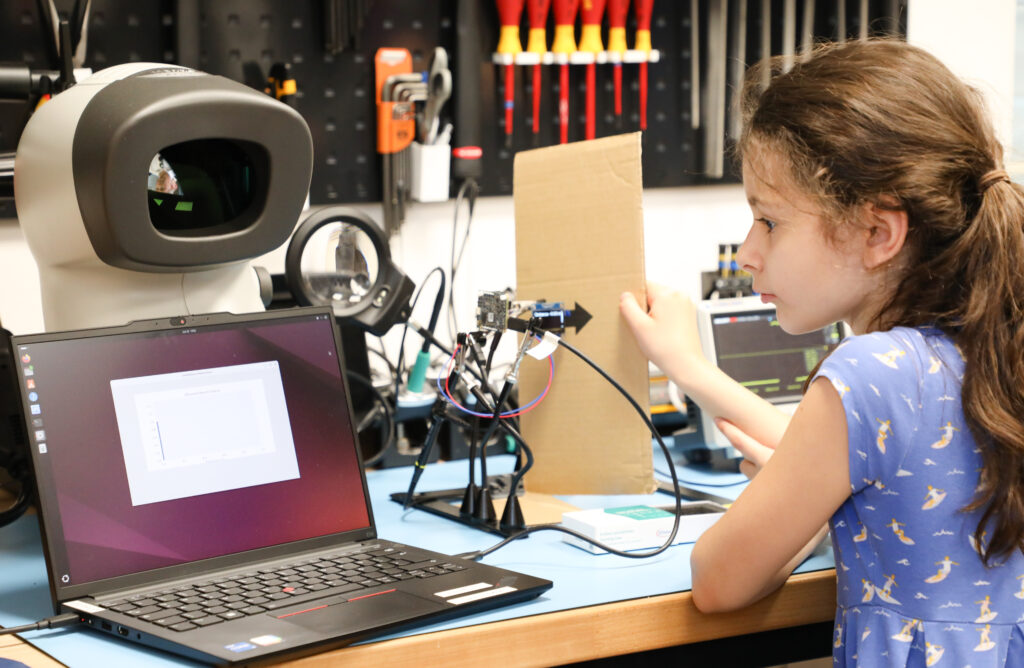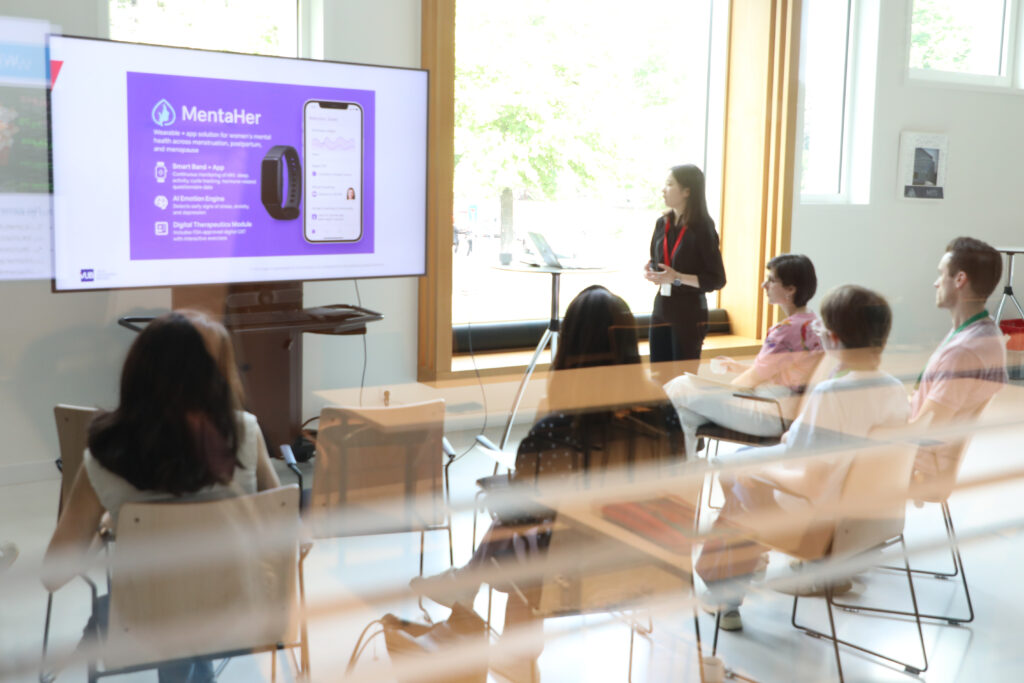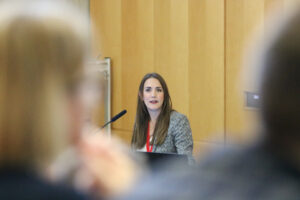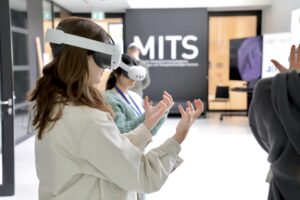EU Commissioner Elisa Ferreira visits Saxony
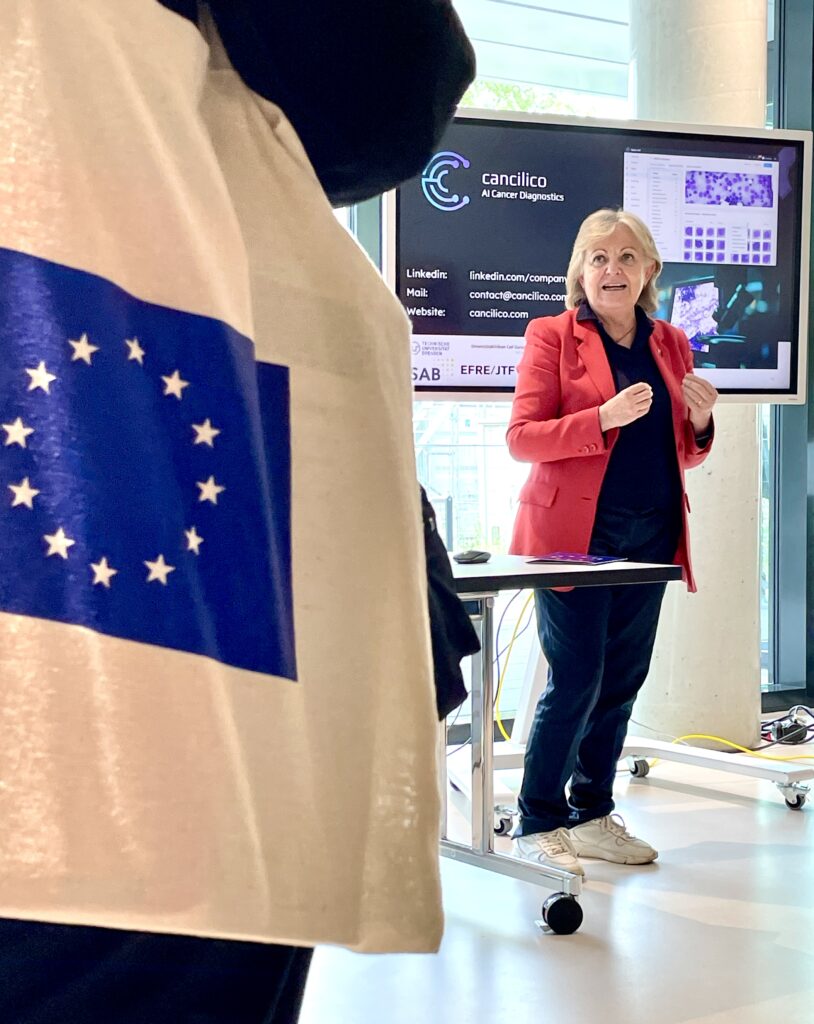
MUSIK: AI gives voiceless patients a new voice
Rudolf von Bünau, managing director of Altavo GmbH and coordinator of the MUSIK subproject (multi-sensory non-invasive voice prosthetics using AI), presented how the project partners want to help people who have lost their voice, for example as a result of laryngeal surgery, to regain their own natural-sounding voice. Recorded voice samples of the artificial voice were demonstrated. The non-invasive sensor technology can detect and characterize silent speech movements. Neural networks convert these signals into directly audible speech. The technology developed by Altavo is ‘non-invasive’ in that the sensors are attached to the surface of the skin and do not need to be inserted into the body.
HybridEcho: fundamentally improving medical ultrasound
Project coordinator Dr Moritz Herzog presented the HybridEcho project, in which several companies and research institutes are working together to fundamentally improve medical ultrasound technology. The aim is to develop and integrate new microelectromechanical components for an ultrasound system to enable advanced imaging procedures based on signals from mobile communications. The resulting system will set a new standard for medical ultrasound with its significantly improved image quality. The Commissioner and the Minister were given an insight into the many aspects of the project by means of various modules, such as the specially manufactured micromechanical components and the robotic test bench, which can be used to obtain information on the optimum signal shape.
Cancilico: AI-supported MyeloAID software revolutionizes haematological diagnostics
The start-up Cancilico is a university spin-off that demonstrates how to transfer top-level research for the direct benefit of patients. Dr Moritz Middeke, Chief Medical Officer and MD at Dresden University Hospital, presented the MyeloAID product in an interactive demonstration. The technology developed automates the classification and counting of cells in bone marrow samples, enabling the cell type to be analyzed quickly and accurately. This innovation not only increases diagnostic precision, but also significantly reduces the time and effort traditionally required for haematological testing.
Further Information
More News
Femtech, Ethics & Innovation: Highlights from the HALL-EKFZ Summer School 2025


